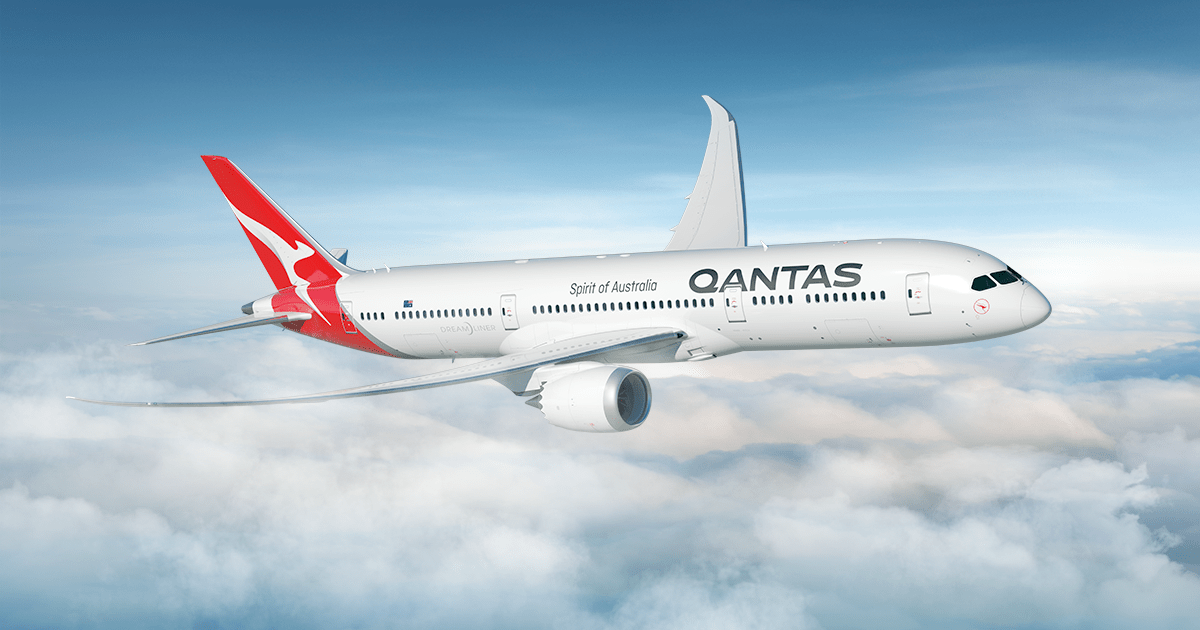Qantas has hailed its latest financial results despite what it has described as "mixed market conditions."
The firm posted a 17% decline in its underlying profit before tax of AUS$1.3 billion ($881 million) and a statutory profit before tax of $1.27 billion for the financial year 2019.
The decline was impacted by a $614 million increase in fuel costs from higher oil prices and a further $154 million of the foreign exchange impacts on non-fuel net expenditure.
The result was also impacted by a $92 million non-cash expense on provisions for items including employee leave entitlements – part of an accounting requirement that means this charge increases when interest rates fall.
Group Domestic delivered an underlying EBIT of $1.03 billion, down by 4%. Unit revenue from Qantas and Jetstar’s domestic operations grew by a combined 4% on flat capacity, as fares caught up to higher oil costs.
Qantas Domestic, which achieved its second-highest underlying profit, increased unit revenue by 5% and seat factors were steady at 78%.
Elsewhere, Jetstar’s domestic unit revenue increased by 3% and ancillary revenue per passenger rose by 12%, driven largely by take-up of new baggage options and Club Jetstar reaching 340,000 members. The airline’s upgrade of its A320 cabins is now complete, delivering a 3% capacity improvement per aircraft.
Jetstar’s international services achieved significant unit revenue growth, with solid performance on key leisure routes such as Bali and Japan.
Qantas Group CEO Alan Joyce said the FY19 performance was particularly positive given mixed market conditions.
He commented: “This result shows the strength of our individual businesses but also the strength of our portfolio as a whole. Even with headwinds like fuel costs and foreign exchange, we remain one of the best-performing airline groups in the world.
“Domestically, our dual-brand approach with Qantas and Jetstar continued to give us a leadership position in the corporate, premium leisure and budget travel categories, all with strong margins.
“Qantas International has improved its competitive position by evolving its fleet, network and partnerships. We’ve carved out some unique advantages like the Perth-London route and there is a lot of value still to be unlocked through our alliances.
“Qantas Loyalty returned to double-digit earnings growth in the second half, thanks to new revenue streams from insurance and financial services as well as improvements to the frequent flyer program.
“Looking ahead, the overall market remains mixed. Domestically, we’re seeing weakness in the price-sensitive leisure market but premium leisure demand is steady.
“Internationally, the outlook remains positive for premium international travel demand, helped by a reduction in broader market capacity."
Qantas International delivered an Underlying EBIT of $285 million, down by 28%. There was a significant improvement in second-half performance, as competitor capacity and overall fare levels adjusted to higher fuel prices.
Network and fleet changes continue to deliver benefits, with particularly strong performances on the Perth-London route and Singapore hub services.
Looking forward, the airline is looking to implement new flights with American Airlines as part of its joint business venture including the launch of a Brisbane-Chicago route in FY20.
The airline will also welcome a complete refurbishment of Qantas’ 12 Airbus A380 aircraft, including upgrades to each class of cabin, a new onboard lounge and 27% increase in premium seating. Work on the first aircraft is underway, which is expected to be in service by September.
During the period, Qantas also took delivery of an additional six 787-9s for Qantas International from October 2019, taking the total fleet to 14 aircraft.

